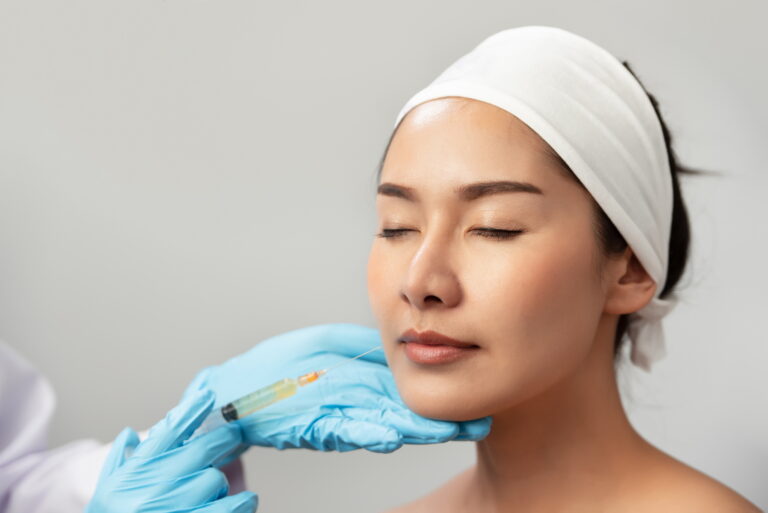Skin fillers have gained immense popularity in recent years as a non-invasive solution for rejuvenating the skin and combating signs of aging. These injectable treatments offer a quick and effective way to enhance facial features and restore a youthful appearance.
However, with the increasing interest in skin fillers, it’s essential to have a clear understanding of how they work, what to expect, and their potential benefits and risks.
In this article, we will address ten popular questions about skin fillers to help you make informed decisions about this cosmetic procedure.
What Are Skin Fillers?
Skin fillers, also known as dermal fillers or soft tissue fillers, are gel-like substances injected beneath the skin’s surface to add volume, smooth wrinkles, and enhance facial contours. They are commonly used to treat fine lines, wrinkles, and age-related volume loss.
How Do Skin Fillers Work?

Skin fillers work by replenishing lost volume and stimulating collagen production. They are typically made from hyaluronic acid, a naturally occurring substance in the body that helps maintain skin hydration and firmness.
When injected, fillers plump the skin and reduce the appearance of wrinkles.
What Areas Can Be Treated with Skin Fillers?
Skin fillers are versatile and can be used to enhance various facial features, including the lips, cheeks, chin, jawline, and under-eye areas. They can also be used on the hands and neck to improve skin texture and appearance.
Are Skin Fillers Safe?
When administered by a qualified and experienced healthcare provider, skin fillers are generally safe. However, as with any medical procedure, there are potential risks, such as infection, bruising, and allergic reactions.
It’s crucial to choose a licensed and reputable practitioner for your treatment.
How Long Do Skin Fillers Last?
The longevity of skin fillers depends on the type of filler used and the area treated. On average, most hyaluronic acid fillers last six to twelve months. Some fillers designed for specific purposes may last longer.
Is There Downtime After Skin Filler Injections?

One of the advantages of skin fillers is that there is minimal to no downtime. Patients can typically resume their daily activities immediately after the procedure. However, some temporary swelling, redness, or bruising may occur at the injection site.
Can Anyone Get Skin Fillers?
Skin fillers are generally safe for adults, but not everyone is a suitable candidate. Pregnant or breastfeeding women, individuals with certain medical conditions, and those with allergies to filler ingredients should avoid the treatment. Consultation with a healthcare provider is essential to determine eligibility.
What Are the Benefits of Skin Fillers?
Skin fillers offer several benefits, including immediate results, enhanced facial contours, and improved self-confidence. They are an excellent option for individuals seeking a non-surgical solution to address signs of aging.
Are Skin Fillers Reversible?
Many hyaluronic acid-based fillers are reversible using an enzyme called hyaluronidase. This enzyme can be injected to dissolve the filler in case of uneven results or complications, providing an added layer of safety.
How Can I Choose the Right Injector?

Selecting a skilled and experienced injector is crucial for a successful outcome. Research potential providers, read reviews, and ask for before-and-after photos. Ensure that the practitioner is licensed and trained in administering skin fillers.
Skin fillers have revolutionized the cosmetic industry by offering a non-surgical solution to address signs of aging and enhance facial features.
Understanding how they work, their benefits, and potential risks is essential for anyone considering this treatment.
By asking the right questions and choosing a reputable provider, you can achieve natural-looking and satisfying results with skin fillers.
Always prioritize safety and consult with a qualified healthcare professional for personalized advice and treatment.

